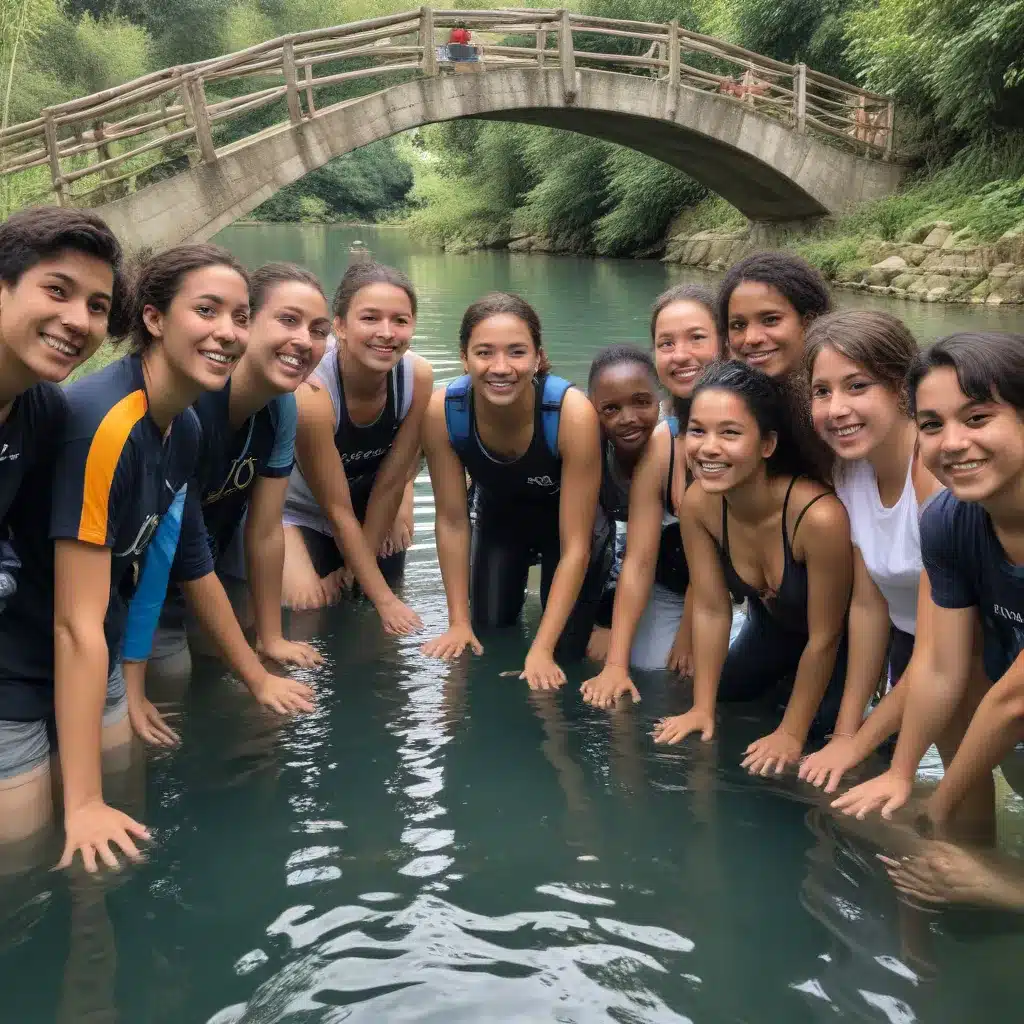
Fostering Inclusion through Intercultural Dialogue
In an increasingly interconnected world, the need to bridge cultural divides and promote social inclusion has become more crucial than ever. Water, as a universal resource, can serve as a powerful catalyst for cross-cultural exchange and understanding. By engaging youth in water-based intercultural dialogues, we can harness the transformative power of culture to build more cohesive, resilient, and equitable societies.
Unlocking the Potential of Intercultural Dialogue
Intercultural dialogue is a dynamic process that allows individuals and groups from diverse backgrounds to engage in open and respectful exchanges. It goes beyond mere tolerance, encouraging the exploration of different perspectives, the recognition of shared values, and the celebration of cultural diversity. As a practical tool for addressing the drivers of misunderstanding and conflict, intercultural dialogue holds immense promise for advancing inclusion and peace.
However, the systematic knowledge on the skills, structures, and values needed for effective intercultural dialogue has been limited. To overcome this gap, UNESCO, in partnership with the Institute for Economics and Peace, has developed the Initiative for Enabling Intercultural Dialogue. This groundbreaking initiative has produced the UNESCO Framework for Enabling Intercultural Dialogue, a comprehensive approach to measuring the enabling environment for successful dialogue processes.
The Framework’s nine domains, ranging from structural elements like policies and legal frameworks to supporting principles and competencies, provide a robust blueprint for understanding and strengthening the foundations of intercultural dialogue. By analyzing the data collected through this Framework, policymakers and practitioners can craft more informed and targeted interventions to support dialogue, ultimately contributing to the prevention of conflict, the protection of human rights, and the building of sustainable peace.
Water as a Unifying Force
Water, in its universal nature, serves as a powerful shared resource that can bring diverse communities together. Whether it’s access to clean drinking water, the management of water resources, or the cultural significance of water bodies, these water-related issues transcend cultural and geographical boundaries. By centering water as the focal point of intercultural exchanges, we can create opportunities for meaningful dialogue and collective problem-solving.
Water-based intercultural youth exchanges, in particular, hold immense potential for fostering inclusion and social cohesion. Young people, with their boundless energy, creativity, and willingness to engage across differences, are well-positioned to lead the way in breaking down cultural barriers and cultivating mutual understanding.
Through these exchanges, youth from different backgrounds can come together to explore water-related challenges, share traditional water management practices, and collaborate on innovative solutions. By learning from each other’s perspectives and experiences, they can develop a deeper appreciation for cultural diversity and its role in sustainable water stewardship.
Empowering Youth as Agents of Change
Youth-led intercultural dialogues centered on water can have a transformative impact on both individual and community levels. By providing platforms for exchange, these initiatives empower young people to become active agents of change, amplifying their voices and leveraging their potential as catalysts for social inclusion.
| Key Benefits of Water-based Intercultural Youth Exchanges | Outcomes |
|---|---|
|
|
By participating in these exchanges, young people develop a deeper understanding of the interconnectedness between water, culture, and social inclusion. They learn to navigate differences, challenge stereotypes, and find common ground, ultimately becoming ambassadors for intercultural dialogue and drivers of positive social transformation.
Integrating Intercultural Dialogue into Policy and Practice
To harness the full potential of water-based intercultural youth exchanges, it is crucial to integrate these initiatives into broader policy frameworks and development strategies. Governments, civil society organizations, and international agencies must work collaboratively to create enabling environments that support and sustain these powerful platforms for dialogue and inclusion.
Key policy considerations may include:
- Incorporating intercultural dialogue and water-related education into national curricula and youth development programs
- Providing funding and resources for the establishment and expansion of water-based intercultural youth exchange initiatives
- Fostering partnerships between diverse stakeholders, including educational institutions, water management authorities, and cultural organizations
- Leveraging digital technologies to facilitate virtual exchanges and broaden the reach of these programs
- Monitoring and evaluating the impact of these initiatives to inform evidence-based decision-making and continuous improvement
By prioritizing the integration of water-based intercultural dialogue into policy and practice, we can unlock the transformative power of culture and water to build more inclusive, resilient, and sustainable communities.
Conclusion: Diving into a Future of Inclusion
As we navigate the complex challenges of our interconnected world, the need to bridge cultural divides and foster social inclusion has never been more pressing. Water, as a universal resource, provides a unique opportunity to bring diverse communities together and catalyze meaningful intercultural dialogue.
By empowering youth to lead water-based exchanges, we can unlock the potential of culture to drive positive social change. These initiatives not only cultivate intercultural competencies and global citizenship but also inspire young people to become champions of inclusion and sustainable development.
Through collaborative policymaking and the concerted efforts of governments, civil society, and international organizations, we can create the enabling environments necessary to sustain and expand these transformative water-based intercultural youth exchanges. By diving into this vital work, we can pave the way for a future where cultural diversity is celebrated, social cohesion is strengthened, and the human right to water is realized for all.

